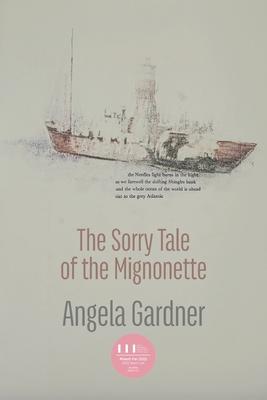The Sorry Tale of the Mignonette tells the tale of the author's great-grandmother's cousin, Richard Parker, a cabin-boy on a yacht being sailed from Southampton to Sydney in 1884 for Jack Want a prominent New South Wales barrister and politician. The Mignonette foundered in the South Atlantic far from land, and after nineteen days with no sight of any other vessel to rescue them, and with all four in a terrible state, the captain and mate decided to murder and eat poor Richard. Days later the remaining sailors were rescued and returned to Falmouth to face justice. The original trial at Exeter Assize was moved to The Old Bailey due to huge public interest and the need to clarify the Empire's maritime legal framework regarding what had been common practice.
The Sorry Tale of the Mignonette takes place in the West Country, at sea and in Australia. It explores power relationships, individual motives, survivor guilt and self-justification, and justice and divine retribution. Poetry heightens the tension and drives the narrative telling the personal and human story of one of the most important legal judgements in English Law-that necessity is not a defence for murder-and is still taught at Universities The Sorry Tale of the Mignonette tells the tale of the author's great-grandmother's cousin, Richard Parker, a cabin-boy on a yacht being sailed from Southampton to Sydney in 1884 for Jack Want a prominent New South Wales barrister and politician. The Mignonette foundered in the South Atlantic far from land, and after nineteen days with no sight of any other vessel to rescue them, and with all four in a terrible state, the captain and mate decided to murder and eat poor Richard. Days later the remaining sailors were rescued and returned to Falmouth to face justice. The original trial at Exeter Assize was moved to The Old Bailey due to huge public interest and the need to clarify the Empire's maritime legal framework regarding what had been common practice.
The Sorry Tale of the Mignonette takes place in the West Country, at sea and in Australia. It explores power relationships, individual motives, survivor guilt and self-justification, and justice and divine retribution. Poetry heightens the tension and drives the narrative telling the personal and human story of one of the most important legal judgements in English Law-that necessity is not a defence for murder-and is still taught at Universities globally.
